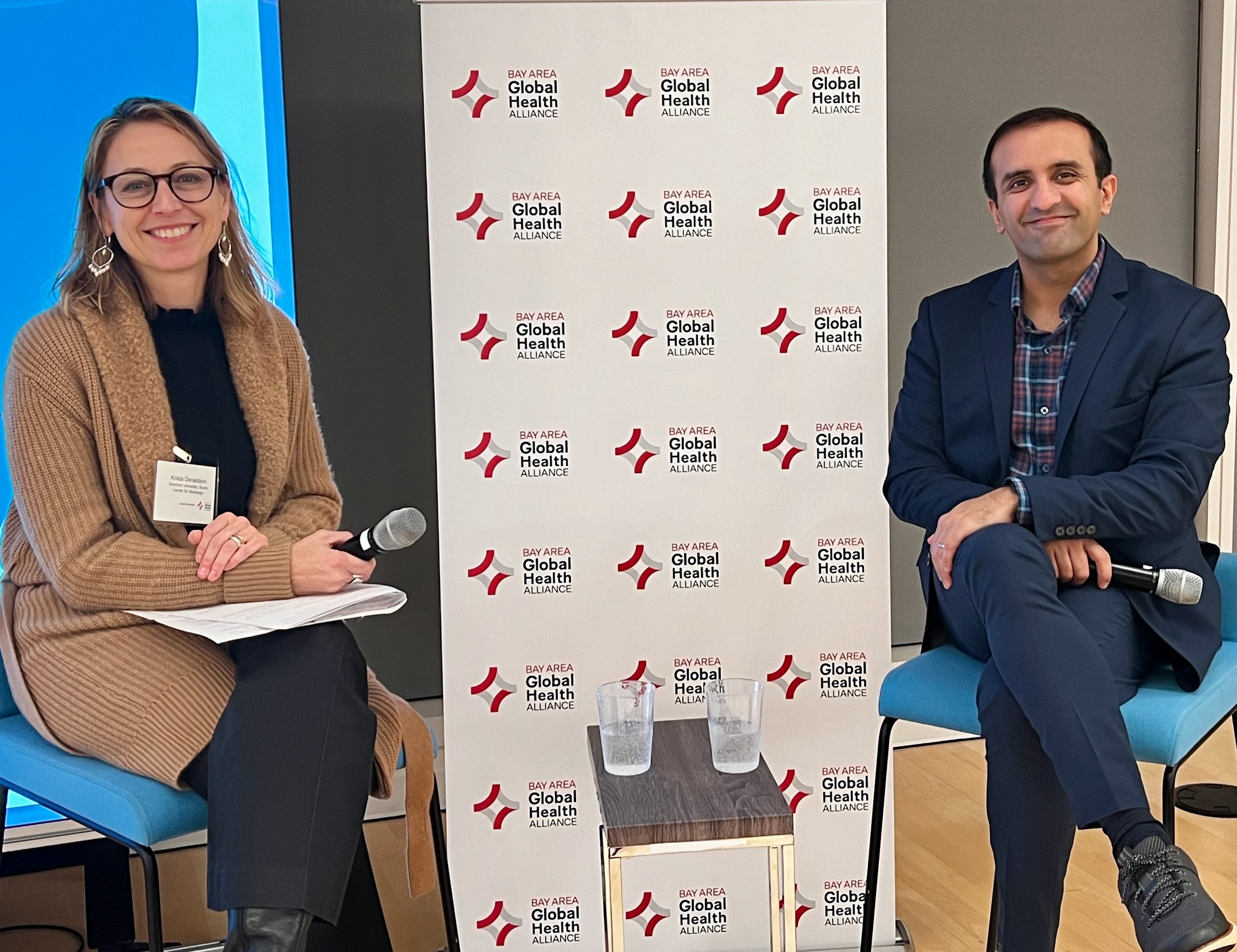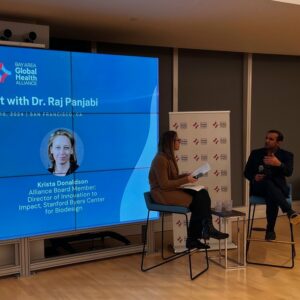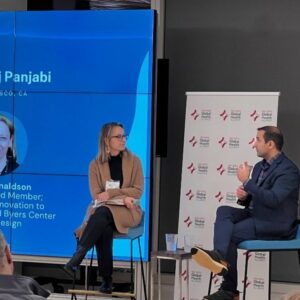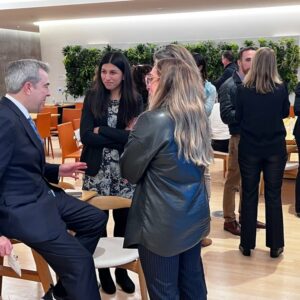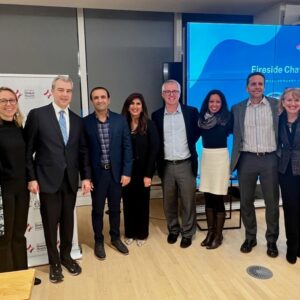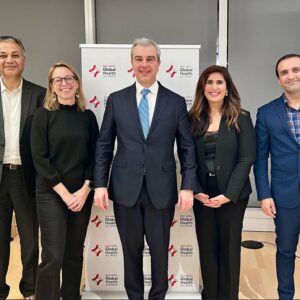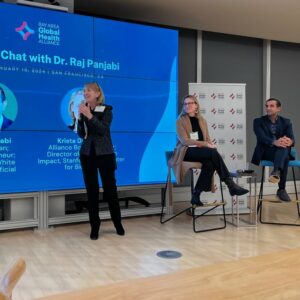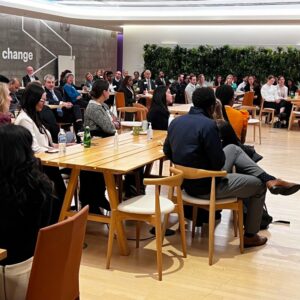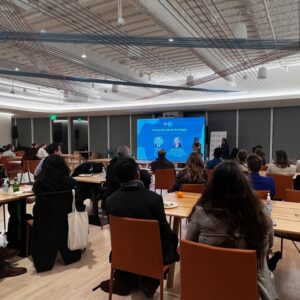You can access the talk here.
Dr. Raj Panjabi, a prominent physician, entrepreneur, and former White House official, shared his rich experiences and insights with the global health community at a fireside chat hosted by the Bay Area Global Health Alliance at Accenture’s San Francisco office on January 10. The chat and reception immediately followed the Alliance’s rich panel on healthcare in emerging markets held at the J.P. Morgan Healthcare Conference.
Renowned for his leadership in the pandemic and biological threats office under President Biden, Panjabi offered a deep dive into the challenges and triumphs of global health initiatives. Krista Donaldson, director of Innovation to Impact at Stanford University‘s Byers Center for Biodesign and an Alliance board member, facilitated the conversation.
Reflecting on the Covid-19 pandemic, Panjabi emphasized the significance of community-led responses in public health. “If communities in public health are not merely the objects of change but active agents in it, we can truly realize our global health objectives,” he stated. This perspective highlights the importance of empowering communities to play a central role in health-related transformations.
Dr. Panjabi also shared insights from his time at the White House, focusing on the global vaccination campaign against Covid-19. He expressed pride in the community-centric approach adopted during the pandemic. “The reason I feel proud about it is not what we in the White House did or didn’t do; it is because of community centers like La Colaborativa, which actually brought care to people,” he said. This reflects his belief in the power of grassroots initiatives to effect substantial change in public health responses. “The central lesson of Covid is that to protect ourselves, we have to protect others — and that means vulnerable people in this country, it means vulnerable people around the world,” he added.
The recent erosion of life expectancy in the US and worldwide also motivates his work. Looking at successful initiatives to thwart further life expectancy setbacks, Panjabi attributes their success to the “basic idea of meeting people where they are, bringing care to people rather than waiting for them to come to care.”
Addressing a question from Darshak Sanghavi, M.D., program manager, ARPA-H, Panjabi identified two critical areas needing innovation and investment: mental health and chronic disease management. He stressed the need for creative solutions in healthcare delivery and the role of multidisciplinary partnerships in guiding companies on essential capital investments for success in emerging markets.
Panjabi argued for innovative financing solutions to address global health challenges. In addition to funding from programs like the Global Security Act or the World Bank’s Pandemic Fund, he called for more public-private collaboration.
He pointed to the U.S. International Development Finance Corporation’s (DFC) financing that provides emerging markets better access to emergency purchasing power. “That would allow companies making these products to have greater clarity about how much volume needs to be ordered. … Well, guess what? That’s a win-win for everybody because if you have a higher volume of your product, that’s going to lower the price for each one of those products, which means Americans would win, and so would people around the world. That’s the kind of creativity we need more of at this moment.”
He added, “We’ve got to get better at helping people understand why financing preparedness is vital. … You’ve got to de-risk the investment. Where is the de-risk going to come from? It’s going to come in part from public dollars, which taxpayers support. So, we’ve got to ask our mayors, our state leaders, and our congressional leaders to get behind these initiatives.”
Dr. Panjabi’s work has garnered widespread recognition, including being named one of TIME’s 100 Most Influential People in the World. His insights at the event reflected his extensive expertise and impact in the global health sector. He shared stories from his experiences, including the significant impact of local initiatives like vaccination drives in barbershops for African American men.
The conversation underscored the complexity and interconnectedness of global health issues, highlighting the need for collaborative and community-based solutions, the necessity for concerted efforts in pandemic preparedness, the vital role of technology in healthcare, and the need for innovative multidisciplinary financing approaches for emerging healthcare markets.

